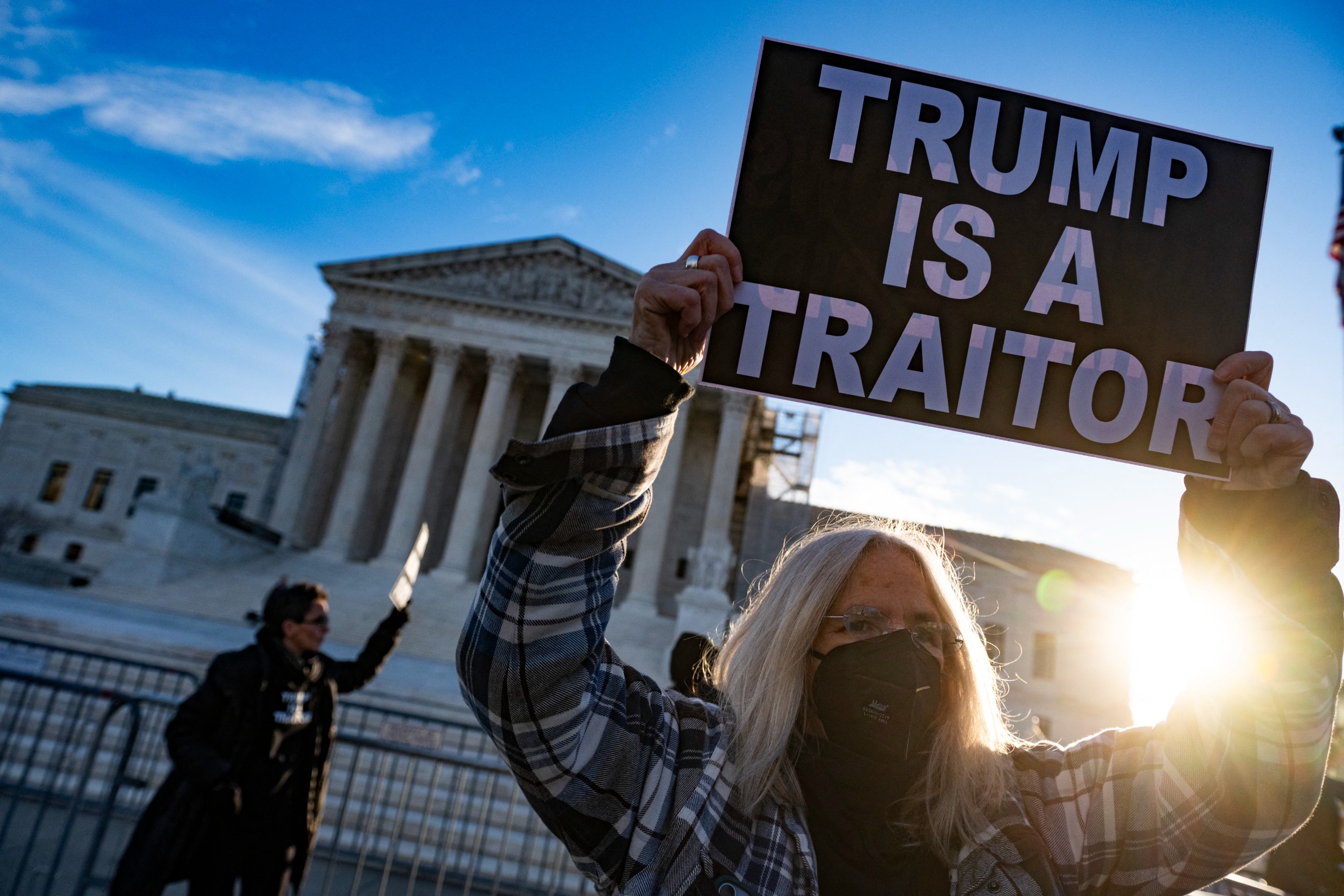First question comes from Justice Thomas, who faced calls for recusal
The first question to Mitchell came from Justice Clarence Thomas, who has been in the spotlight due to his wife Ginni's role in Jan. 6.
Some called on Thomas to recuse himself from this case.
Thomas asked Mitchell if Section 3 is self-executing -- a key issue in this case. Mitchell said the provision needs congressional enforcement.









